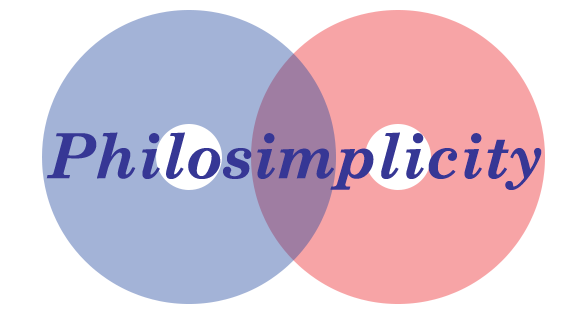Hello, world! My name is Mike, and the purpose of this blog is to talk about philosophy in a conversational and relatable manner. In each post, I’ll be giving a brief primer into an issue, school of thought, topic, or current event under philosophy’s domain. I’ll be speaking to you as a friend, rather than as a professor of some arcane and mystical subject. Any post can and may be updated as I expand my own range of knowledge and as new developments emerge in the philosophical discourse. In the instance that any posts are changed, I will make sure to note and date any modified content.
As for how this blog came to be, the conception of this blog grew out of a desire to share what I’ve learned about philosophy through independent study, reflection, and conversation. Initially, the content on this blog was written for just friends and family, but a few people have suggested that others might find my writing informative. Though I’m formally no student of philosophy, but I’ve been inspired by sites like Stanford’s Encyclopedia of Philosophy to make a layperson friendly guide about the myriad of interesting topics that constitute what we abstractly refer to as philosophy. I’m not here to teach you how to think, or what to think, but to introduce you to a sample of the knowledge and conversations that exist within philosophy. Think of me as a museum curator — I’ll provide you a diverse selection of what you might expect to find should you choose begin your own journey into the world of philosophy.
To tell you a bit more about myself, I’ve always had an interest in philosophical topics. For me, philosophy wasn’t specifically about knowing philosophical writings intimately, but just about asking the question “why?” In school, I always gravitated towards the subjects that valued analysis and synthesis. Additionally, I loved learning from other people’s perspectives and coming up with my own point of view. This love stemmed from a desire to learn more about how people came to their opinions. It wasn’t until college, though, that my true, formal appreciation of philosophy would be solidified.
In college, I studied political philosophy, discussing the underlying assumptions present in the social sciences. Within these classes I realized that the “why” questions could be framed at anything. Although we have the sciences to explain physical causes and the social sciences for social structures, there are entire spheres of human experience where I felt the question needed to be asked. I learned to deconstruct, to detect the hidden viewpoints that might be buried within any argument, idea, topic, or theory. The point of doing something like this isn’t to be “right,” or to tell someone they’re “wrong,” it’s to know the intellectual baggage that might be carried when anyone, yourself included, is asserting a specific point of view. This is an important skill to have because today’s world requires us to evaluate all kinds of ideas on a daily basis. Deducing where someone might be coming from, or the assumptions that might be associated with their perspective is a great way of laying out the implications of their ideas. While this doesn’t necessarily involve philosophy, in some cases it might.
Although I’m by no means a philosophy expert, and this blog is an attempt to learn more about the areas of philosophy that interest me, my hope is that we can learn together and collectively come to appreciate philosophy in a new light.
